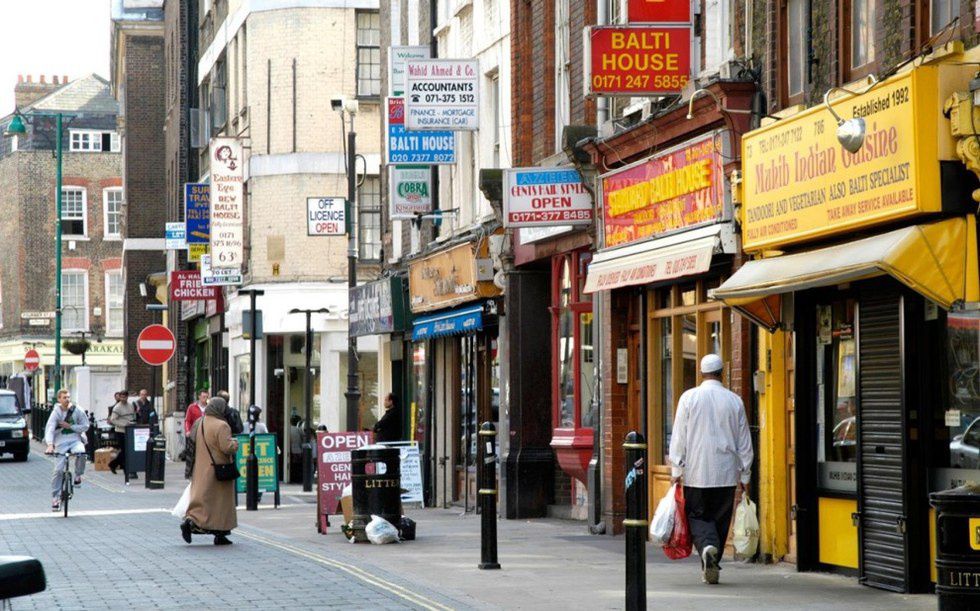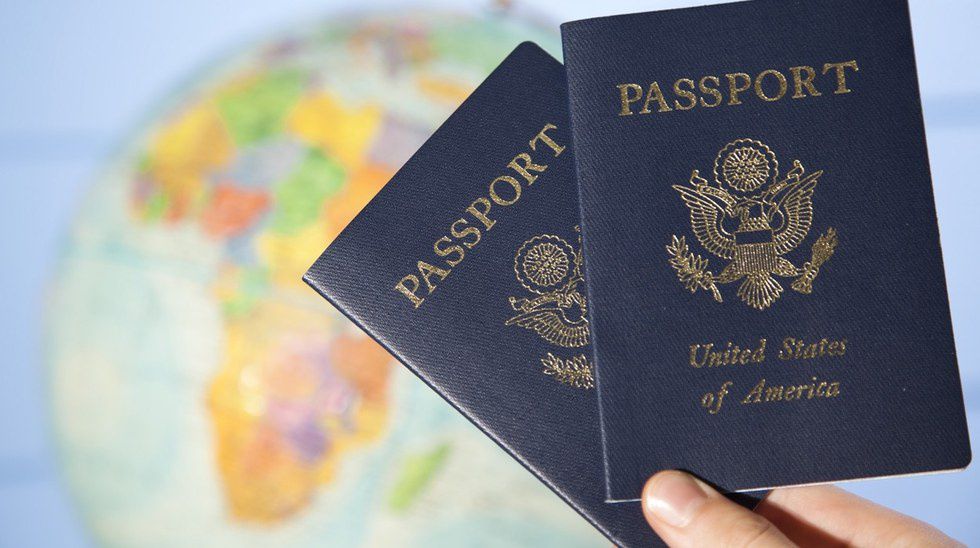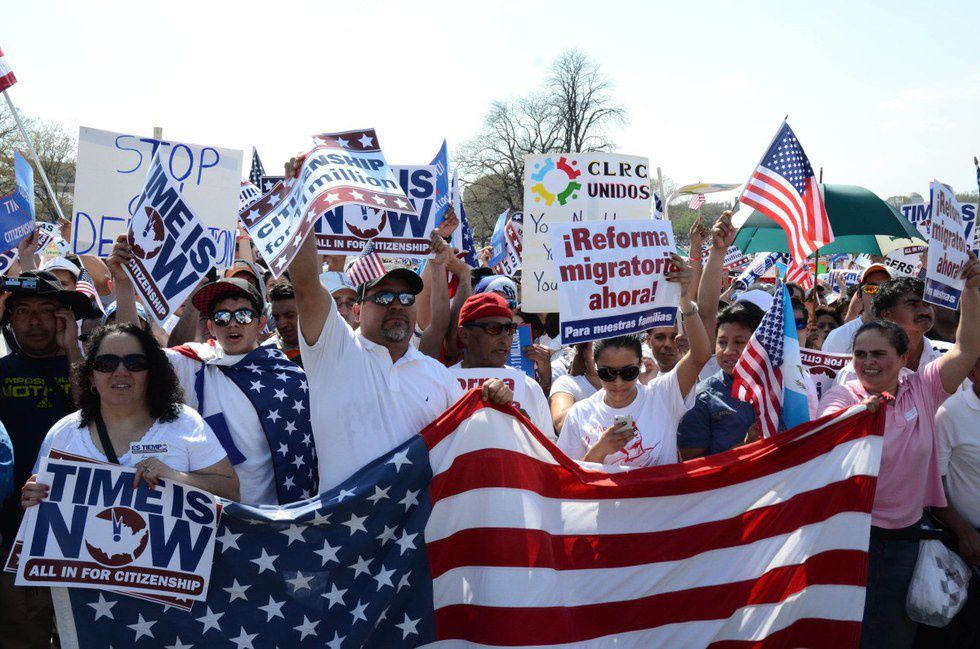The tale of a person who leaves their homeland for a new, exciting life abroad is seemingly nothing new under the sun. In this age of technology and globalization, moving away from home doesn't seem to phase us as much as it used to, or at least it's become far easier and more convenient to keep in touch with what you leave behind. The adaptation to a new environment in itself isn't necessarily difficult, what truly makes moving somewhere new a difficult task is understanding that your culture and your customs aren't the norm anymore. Like most things in life, coming to that realization can have both its ups and downs, where, once inserted into a different culture, you realize that there are a thousand and one amazing things you had never come into contact with before that can expand your knowledge and understanding of the world. On the other hand, letting go of the small, daily things that are unique to where you come from definitely becomes a challenge.
Cultural barriers exist anywhere in the world regardless of a similar language or customs. Each place in this world is unique in itself and carries its own personality, just like people. Despite how prepared you might think you are, even though you might conduct an extensive research on your destination, what kind of food you might find, how the people relate to each other and what the local interests are, you can never be fully prepared to what you'll find until you actually get there and live it through.
In August of 2013, I moved to Boston, Massachusetts from São Paulo, Brazil, somehow rid of expectations other than what college parties would look like (I blame mainstream media and movies like "Neighbors" and "Accepted" for leading me to believe that all college parties would be crazy rave-like ragers). With a suitcase and my courage, I moved into the Suffolk University dormitories and hoped for the best while expecting the worse; because you never really know. After spending my entire life studying in the same private, American Catholic school, I was ready for a change, but that change should present itself, I was ready for something new - which, in retrospect, was the best mindset I could've had in that situation.
I made friends, lived fairly comfortably in the dorms, learned how to get around the city, and somehow managed to make it to all my classes on time (for the most part), but most importantly, I finally understood and felt on my own skin the weight of a new culture and its people. Even though Boston (and virtually all major cities in the U.S) is an actual melting pot of numerous cultures and ethnicities, there are still huge staples of classic American culture everywhere you go, from the Dunkin Donuts on every street corner to the way the city completely stops when the Pats are playing. It was new, exciting and appealing to assimilate into that new setting, so as long as I could keep my own culture and all that made me unique, of course.
Eventually, however, you learn that living in a different city will ultimately change you and, as you grow, it'll become a part of your character. You know that, to the core, you'll still be true to where you came from and there's no way to change that, but that adapting to new places means that you're growing and expanding your mindset, and by doing so you're allowing that environment which helped you grow to be a part of you forever. Living abroad has definitely been challenging, there's no way to deny that, but if it wasn't for all the troubles and ordeals I went through, I wouldn't have become who I am today. It was due to the feelings of loneliness, confusion, and at times despair, that I managed to thrive and understand how to use those negative feelings to my advantage.
I remember the first time I came into contact with self-checkout machines - you know, the ones they have at CVS and Stop and Shop that completely eliminate the need for cashiers and human interaction. Coming from a collectivist culture and realizing how individualistic American culture could be was perhaps one of the weirdest and most foreign concepts, and the self-checkout counters are the best way I've found to illustrate that idea. It must've taken me about 10 minutes total to figure out how to work that machine, despite it being 100 percent self-explanatory, I just couldn't seem to wrap what was happening around my head. "It'd be so easy to steal stuff by going through self-checkout," "but what if an item doesn't scan, what do I do then?" and "they should definitely not have these back at home, people would easily shoplift" were the thoughts running through my head as I struggled to scan my items and focused on not accidentally bagging and item without making sure the machine took note of it. I could tell there was a CVS employee watching over me and began to sweat profusely thinking he was assuming the worst of me and that I would just take my items and run, but mostly I think he was just standing there in case anyone needed assistance. In that moment I also realized I wasn't in Brazil anymore, and things worked very, very differently in "America."
Self-checkout counters aside, many other things shocked me as I still had a Brazilian mindset of how things were supposed to happen, and it was only when I began to live a routine that I realized how I began to adapt - after all, you can get accustomed to almost anything after a certain time. Taking the train and walking instead of driving everywhere, buying my own groceries, doing my own laundry, and having to find solutions to my own problems made me grow and mature at a rate I had never experienced before. Being on my own meant I had to take charge of my own life, or else nothing would happen and no one would be there to push me to do the things I had to.
Taking charge of my own life and having to do things on my own, especially in a setting where the underlying rule was essentially "each man for himself," I eventually picked up certain elements of American culture that I otherwise wouldn't have, had I decided not to move here. Inserting myself in a completely different setting also allowed me to look at my own culture with more of a critical eye, wherein I noticed certain discrepancies and issues with the traditions I always held dear to my heart. I realized eventually that not everything worked best in the way that I had always done things, and that allowing parts of a different culture to take over could be a good and constructive thing to do.
When it comes down to it, though, I know in my heart I will always be Brazilian, no matter where I go, who I meet or what I do. I know now that I have a way better understanding and view of other cultures and how to welcome them into my life without having to deny my own. I know that I'll still prefer my coffee strong, the beach will forever be my safe haven and that my culture is rich, deep and fascinating. Whenever I go back home, people always ask me where I prefer to live, what country I think is best or if I'm ever coming back home, since I still have family and friends back there. All I can say is that there are great and amazing things in both countries, that both the U.S and Brazil are great places to live, but it depends on the individual needs and wants of each person. I for one will most likely never go back home for good, but not because I don't think I can reinsert myself back into my own home country, but because now I've realized how big the world is and how many different and new things it has to offer. Boston isn't my last stop, and hopefully no place will ever be.











 The minimum wage is not a living wage.
StableDiffusion
The minimum wage is not a living wage.
StableDiffusion
 influential nations
StableDiffusion
influential nations
StableDiffusion












